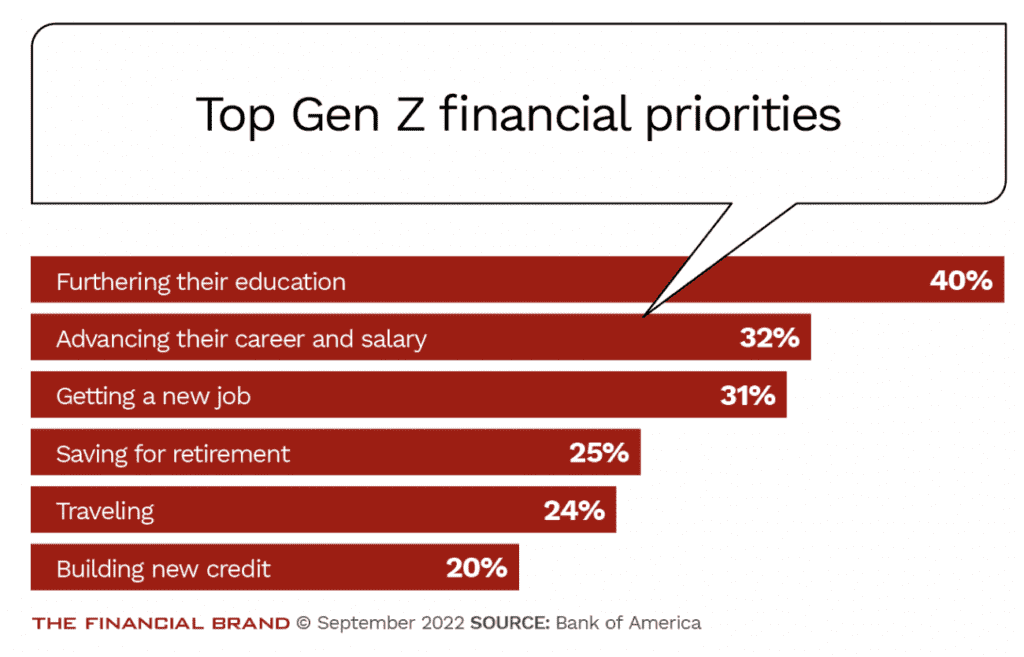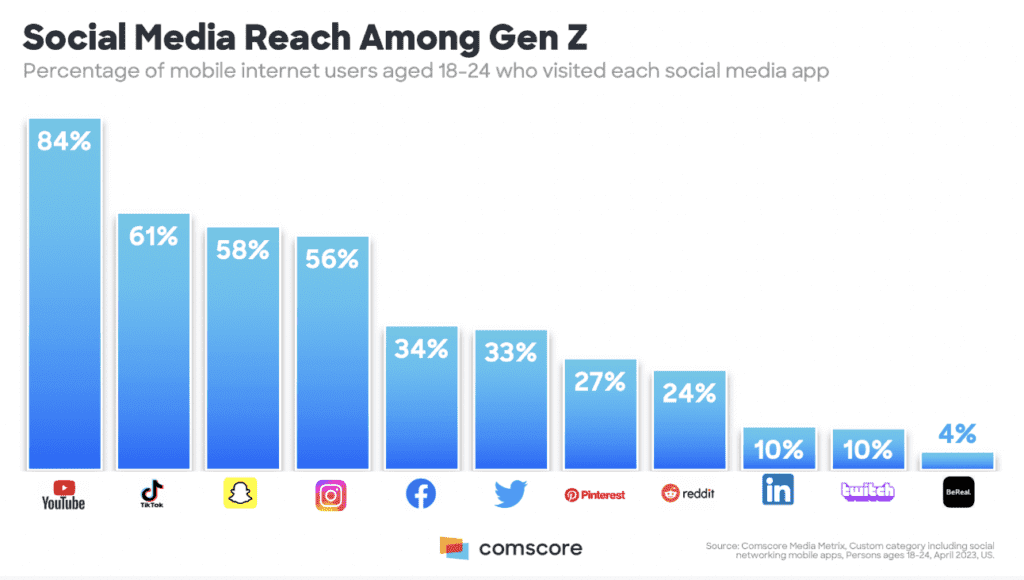Said to be more engaged in their finances and striving for financial freedom, GenZ has been a focus of many financial studies.
While the generation has been found to have less available wealth than their predecessors, they have ambitious goals. They’re less likely to take on debt and more likely to have a side hustle than any generation before.
Whether it be the skyrocketing cost of living, post-pandemic instability, or digital connectivity that’s driving the generational interest in finance, it’s a market fintechs are scrambling to get into.
“The problem that the fintech product is solving equals the audience, whether that be a GenZ, or baby boomer or millennial or whatever else,” said Nicky Senyard, CEO and founder of Fintel Connect. “Fintech products generally are approaching more innovative, not so staid consumer, therefore GenZ seems to be the main focus.”
Demanding hyper-personalized and mobile-based products, GenZ and fintech seem like the perfect match but a deficit in financial education can mean solutions are overlooked.
RELATED: Quirk: The GenZ financial literacy app tailored to user’s personality
“There’s a huge market of people that are really interested in investing (and finance),” said Miles Cole, CEO and founder of the social investing app, Follow. “I think the vast majority of that market is more Gen Z.”
“But what’s the next step from being interested? It’s a big step from downloading something like Robinhood and being interested to researching stocks and managing a portfolio.”
The Power Of Content
“I think education is very important,” Cole continued. “When we had the idea for the company, our assumption was, everyone was going to really like this idea of copy trading. And no one’s really going to care about the content aspect – we were wrong about that.”
He explained that half of Follow’s customers had come to the company to engage in copy trading. The other half’s focus was educational content.
Financial education content is proving its value. In a survey conducted by the Bank of America, 40% of GenZ made furthering their education their top financial priority.

For a generation suckled by mobile phone usage, the turn to social media for this education was perhaps inevitable.
“These channels are just ways that people are connecting with their friends following information, but it makes it a lot more consumable,” said Alana Levine, CRO of Fintel Connect. “It’s about helping people make better financial decisions.”
“It can help them shortcut that step of searching for the right credit card, figuring out how to pay off student loans, what to consider for mortgages, or how to take advantage of an IRA or a 401 K.”
At the epicenter are the Finfluencers
“Everyone has that money person in their life,” said Cole. “Everyone has that friend that always seems to be crushing it in the stock market, that person you text whenever you have finance questions because you trust them, and they always seem like they’re on it.”
“The relationship that Gen Z has with these influencers is the exact same.”
The Rise Of The Finfluencer
Finfluencer, a term that would have meant nothing a few years ago, refers to social media personalities that have built their brand on providing financial education. Whether that be through providing information on their trading moves or explaining financial products, millions have turned to them for help.
Humphrey Yang, the 35-year-old influencer who is currently ranked most popular, has a total following of 54,317,401, but all in the global top ten have three million or over. Yang’s subjects of choice are explainers of day-to-day personal finance.
“I think the concept of influencers kind of always been there,” said Levine. “As new mediums evolve. And as people consume or engage with the world in different ways, it creates new opportunities and new platforms for people to then share and exchange ideas.”
She explained that the space had evolved from advice columns to blogs, and now social media had become the sounding block of choice. Within the sphere of social media, the platforms have shaped the audience.
“It’s the platform that’s more generationally aligned than content,” said Senyard. “That message is the same, but the platform attracts and contains a different audience. The platforms are giving people the opportunity provide peer to peer education.”
She highlighted that the formats of the platforms appealed to different audiences. YouTube appealed to more visual, longer-form learners, while platforms like TikTok captured short attention spans.
For older generations, the platforms of choice had remained the originals – YouTube and Facebook. While Youtube remains a favorite of GenZ, Snapchat, TikTok, and Instagram prevail.

“Financial literacy was such a stodgy old thing. Nobody wanted to look at investments,” continued Senyard. “Finfluencers are bringing financial literacy to the place where people live through the voice that they understand. That, to me, is their power.”
The Opportunity For FIs
While the rise of influencers is socially interesting, it could also provide a powerful tool for financial products.
“One of the most important things in any fintech company is trust. You’re dealing with money,” said Cole. “A lot of these Gen Z folks already really trust a lot of these influencers they follow.”
“Rather than having to start all of those relationships and build that trust from scratch, a good way to kind of kickstart it is targeting these influencers that already have big audiences of Gen Z that trust them.”
The trust in finfluencers has become so significant many are calling for increased scrutiny over their ability to shape consumer behavior. Most recently, influencers promoting the ill-fated FTX (at the time still considered a reputable company) faced a $1 billion class action for “fraud promotion”.
As a result, globally, regulators have been exploring guidelines for influencers to protect consumers from blindly following paid marketing.
As this regulatory interest develops, the rules for companies using influencers to promote their products may become more extensive, causing concerns for compliance. However, this could add to the level of trust bestowed upon their ambassadors.
“I always say get the compliance team involved at the outset,” said Levine. “So they feel like they’re part of the solution and that they’re involved in creating the structures and the processes.”
“Now there’s so much noise around this space anyway about misrepresentation and false advertising, I think everyone is paying a lot more attention to it, and they’re prioritizing it more. Influencers, now that they understand it, they don’t want to take on the risk. They want to be part of the solution.”
However, she said, for influencer marketing to remain impactful, authenticity is key.
“Influencers must maintain their editorial liberties. It’s their voice. They’re gonna say the Good, the Bad, and the Ugly and that’s what makes it authentic. It means you’re probably going to weed out some of the clients that you don’t want, but it means the ones that are really committed and see the value is really going to be helpful.”
RELATED: The Fintech Coffee Break Ep. 14 – Follow


